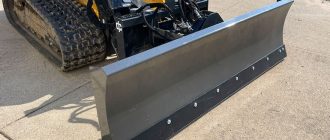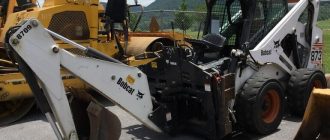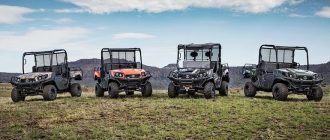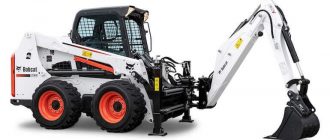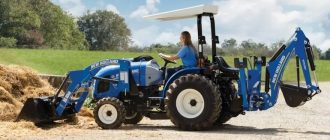Ag application equipment comes in various forms, each designed for specific tasks in agriculture. Each type of ag application equipment serves a distinct purpose and comes with its own set of advantages and disadvantages. Spreaders are ideal for granular materials, sprayers excel in liquid applications, applicators offer versatility for various materials, and floaters are suited for challenging field conditions with minimal soil compaction.
- Agco Applicators
- Agco Spra-Coupe 3440
- Agco Spra-Coupe 3630
- Agco Spra-Coupe 3640
- Agco Spra-Coupe 4440
- Agco Spra-Coupe 4450
- Agco Spra-Coupe 4455
- Agco Spra-Coupe 4460
- Agco Spra-Coupe 4640
- Agco Spra-Coupe 4650
- Agco Spra-Coupe 4655
- Agco Spra-Coupe 4660
- Agco Spra-Coupe 7000
- Agco Spra-Coupe 7450
- Agco Spra-Coupe 7460
- Agco Spra-Coupe 7650
- Agco Spra-Coupe 7655
- Agco Spra-Coupe 7660
- Air-O-Fan Vineyard / Orchard Sprayers
- Apache Sprayers
- Bestway Sprayers
- Case IH Applicators
- Great Plains Sprayers / Spreaders
- Hagie Sprayers
- Hardi Sprayers
- Hardi 2500 i Alu
- Hardi 2500 i DELTA
- Hardi 2500 i TWIN FORCE
- Hardi 3000 i Alu
- Hardi 3000 i DELTA
- Hardi 3500 i GVA
- Hardi 3500 i HAZ
- Hardi 3500 i HPZ
- Hardi 4100 i GVA
- Hardi 4100 i HAZ
- Hardi 4100 i HPZ
- Hardi Commander 3200 DELTA
- Hardi Commander 3200 FORCE
- Hardi Commander 3200 TWIN
- Hardi Commander 4400 DELTA
- Hardi Commander 4400 FORCE
- Hardi Commander 4400 TWIN
- Hardi Commander 6600 FORCE
- Hardi Commander 6600 TWIN
- Hardi Navigator 3000 DELTA
- Hardi Navigator 3000 EAGLE
- Hardi Navigator 3000 PRO
- Hardi Navigator 4000 DELTA
- Hardi Navigator 4000 EAGLE
- Hardi Navigator 4000 PRO
- John Deere Sprayers & Applicators
- Miller Sprayers & Applicators
- New Holland Sprayers
- New Holland S1070 Pull-Type Field Sprayer
- New Holland SF110 Suspended Boom Sprayer
- New Holland SF110 Wheeled Boom Sprayer
- New Holland SF115 Suspended Boom Sprayer
- New Holland SF115 Wheeled Boom Sprayer
- New Holland SF216 Pull Type Sprayer
- New Holland SP275F Self Propelled Sprayer
- New Holland SP310F Self-Propelled Sprayer
- New Holland SP333F Self Propelled Sprayer
- New Holland SP365F Self Propelled Sprayer
- Redball Sprayers
- Rogator / TerraGator Floaters
- Sam Sprayers
- Top Air Sprayers
- Toro Turf Sprayers
- Versatile Sprayers
Types of Application Equipment
The choice of equipment depends on the specific needs of the operation, the type of material being applied, and the field conditions. Here’s a table detailing the key features of agricultural spreaders, sprayers, and floaters:
| Type | Application Method | Capacity | Control |
|---|---|---|---|
| Spreaders | Distributes solid materials like fertilizer or lime over a field | Varies, generally 500-3000 lbs | Manual, hydraulic, or electronic controls with options for GPS and precision farming technology |
| Sprayers | Applies liquid chemicals, fertilizers, or pesticides | Varies, generally 200-2000 gallons | Manual, hydraulic, or electronic controls with options for GPS, auto-steering, and variable rate technology |
| Floaters | Applies fertilizer or lime with a high ground clearance vehicle | Varies, generally 2000-4000 lbs | Hydraulic or electronic controls with advanced options for GPS, auto-steering, and precision application technology |
Spreaders
A spreader is a device used to evenly distribute granular or bulk materials, such as fertilizers, seeds, lime, and pesticides, over a large area.
- Application Method: Spreaders typically use a rotary or pendulum mechanism to distribute solid materials evenly over a field.
- Capacity: The capacity of spreaders can vary significantly depending on the model, ranging from smaller units for personal use to large commercial units capable of holding several thousand pounds.
- Control: Modern spreaders often feature electronic controls that can be integrated with GPS for precise application. This ensures even distribution and optimal use of materials, reducing waste and improving crop yields.
| Pros | Cons |
|---|---|
|
|
Sprayers
A sprayer is a device used to apply liquid substances, such as herbicides, insecticides, fungicides, and liquid fertilizers, to crops.
- Application Method: Sprayers are designed to apply liquid substances, such as herbicides, pesticides, and liquid fertilizers, directly to crops. They can be boom sprayers, which cover large areas, or spot sprayers, which target specific areas.
- Capacity: The capacity of sprayers varies widely. Smaller models for small farms or gardens might hold a few hundred gallons, while larger commercial sprayers can hold several thousand gallons.
- Control: Sprayers often come with advanced control systems, including GPS for precision application, auto-steering for better coverage, and variable rate technology to adjust the application rate based on the needs of specific areas of the field.
| Pros | Cons |
|---|---|
|
|
Floaters
A floater, often referred to as a high-clearance applicator, is a self-propelled machine with large flotation tires designed for applying fertilizers and pesticides to fields, particularly on soft or wet ground.
- Application Method: Floaters are specialized vehicles designed for spreading fertilizer or lime on uneven or challenging terrain. They have high ground clearance and are capable of operating in various field conditions.
- Capacity: Floaters typically have a large capacity, capable of holding several thousand pounds of material, making them suitable for large-scale operations.
- Control: Floaters often feature sophisticated control systems, including hydraulic or electronic controls. They can be equipped with GPS, auto-steering, and other precision farming technologies to ensure accurate application and efficient use of resources.
| Pros | Cons |
|---|---|
|
|
Agricultural application equipment is essential for modern farming, and several manufacturers in the United States are known for producing high-quality spreaders, sprayers, applicators, and floaters.
Ag Applicator Manufacturers
Here is a review of some of the leading manufacturers, highlighting their strengths and areas for improvement.
John Deere
John Deere is a well-known name in the agricultural sector, renowned for its innovative and reliable machinery. John Deere equipment is known for its durability and long lifespan. Advanced features such as GNSS (Global Navigation Satellite Systems: GPS, GLONASS, BeiDou / BDS, Galileo), precision farming tools, and telematics. Extensive dealer support and service network across the United States. Customers appreciate the reliability and technological advancements but often mention the high initial investment.
Case IH
Case IH is a major player in the agricultural machinery industry, offering a range of application equipment. Wide range of equipment suited for various farming needs – continuous innovation and integration of precision farming technologies. Farmers generally praise the performance and versatility, though some have concerns about maintenance and support.
New Holland
New Holland offers a range of agricultural equipment, including application equipment. Comprehensive range of equipment for various applications. Incorporation of modern farming technologies. Farmers like the versatility and ease of use but express varying experiences with durability and support.
Hardi North America
Hardi specializes in sprayers and is known for its dedicated focus on spraying technology. Advanced spraying technology for accurate application – higher cost compared to some competitors / limited dealer network in certain regions. Users appreciate the precision and quality of Hardi sprayers but note the higher price point and regional service limitations.
Apache Equipment Technologies
Apache Sprayers is known for producing self-propelled sprayers that offer simplicity and reliability. Competitive pricing compared to other brands. Simple, straightforward design and operation for dependable performance. Less advanced technology compared to premium brands. Users appreciate the reliability and cost-effectiveness but desire more advanced features and operator comfort.
AGCO (RoGator, TerraGator, Challenger, etc.)
AGCO Corporation offers a variety of brands (RoGator, TerraGator, Willmar, Massey Ferguson, Fendt, Valtra, Challenger), each catering to different segments of the agricultural market. Wide selection of equipment across multiple brands – strong presence and support network worldwide. Customers value the diversity and technological innovation but sometimes face issues with parts and service.
The agricultural application equipment market in the United States is diverse, with several manufacturers offering high-quality products tailored to different farming needs. John Deere and Case IH are praised for their innovation and performance, while AGCO’s diverse range and Hardi’s specialization in sprayers also receive positive reviews. New Holland offers versatility and ease of use, whereas Apache Sprayers is favored for its reliability and cost-effectiveness. Each manufacturer has its strengths and areas for improvement, and farmers should consider their specific requirements and regional support when choosing equipment.
